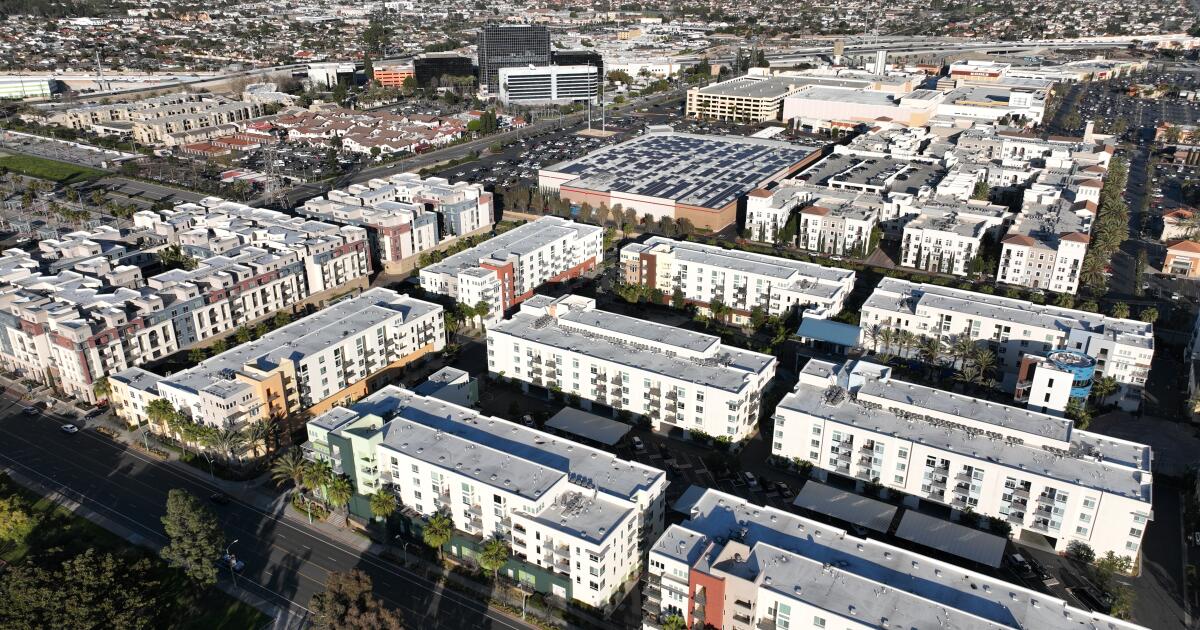California lawmakers just paved the way for a whole lot more housing in the Golden State.
In the waning hours of the 2025 legislative session, the state Senate voted 21 to 8 to approve Senate Bill 79, a landmark housing bill that overrides local zoning laws to expand high-density housing near transit hubs. The controversial bill received a final concurrence vote from the Senate on Friday, a day after passing in the California assembly with a vote of 41 to 17.
The bill had already squeaked through the state Senate by a narrow margin earlier this year, but since it was amended in the following months, it required a second approval. It will head to Gov. Gavin Newsom’s desk in October.
One of the more ambitious state-imposed efforts to increase housing density in recent years, the bill was introduced in March by Sen. Scott Wiener (D-San Francisco), who stresses that the state needs to take immediate action to address California’s housing shortage. It opens the door for taller, denser housing near transit corridors such as bus stops and train stations: up to nine stories for buildings adjacent to certain transit stops, seven stories for buildings within a quarter-mile, and six stories for buildings within a half-mile.
Single-family neighborhoods within a half-mile of transit stops would be subject to the new zoning rules.
Height limits are based on tiers. Tier 1 zoning, which includes heavy rail lines such as the L.A. Metro B and D lines, allows for six- to nine-story buildings, depending on proximity to the transit hub. Tier 2 zoning — which includes light rail lines such as the A, C, E and K lines, as well as bus routes with dedicated lanes — allows for five- to eight-story buildings.
An amateur map released by a cartographer and fact-checked by YIMBY Action, a housing non-profit that helped push the bill through, gives an idea of the areas around L.A. that would be eligible for development under SB 79. Tier 1 zones include hubs along Wilshire Blvd., Vermont Ave., and Hollywood Blvd., as well as a handful of spots in Downtown L.A. and the San Fernando Valley.
Tier 2 zones are more spread out, dotting Exposition Blvd. along the E line, stretching toward Inglewood along the K line, and running from Long Beach into the San Gabriel Valley along the A line.
Assembly members debated the bill for around 40 minutes on Thursday evening and cheered after it was passed.
“Over the last five years, housing affordability and homelessness have consistently been among the top priorities in California. The smartest place to build new housing is within existing communities, near the state’s major transit investments that connect people to jobs, schools and essential services,” said Assemblymember Sharon Quirk-Silva (D-Orange County) in support of the bill.
Other assembly members, including Buffy Wicks (D-Oakland), Juan Carrillo (D-Palmdale) and Josh Hoover (R-Folsom) voiced their support.
Proponents say drastic measures are necessary given the state’s affordability crisis.
“SB 79 is what we’ve been working towards for a decade – new housing next to our most frequently used train stations. This bill has the potential to unlock hundreds of thousands of new multi-family homes,” said YIMBY Action California director Leora Tanjuatco Ross.
Critics claim the blanket mandate is an overreach, stripping local authorities of their ability to promote responsible growth.
Assemblymember Rick Zbur (D-West Hollywood) argued against the bill, claiming it will affect lower-priced neighborhoods more than wealthy ones since land prices are cheaper for housing developers.
The vote came a few weeks after the Los Angeles City Council came out against the bill, voting 8 to 5 on a resolution opposing it.
Councilmember Traci Park, who co-authored the resolution with Councilmember John Lee, called SB 79 a “one-size-fits-all mandate from Sacramento.” Lee called it “chaos.”
The resolution called for L.A. to be exempt from the upzoning since it already has a state-approved housing plan.
The bill has spurred multiple protests in Southern California communities, including Pacific Palisades and San Diego. Residents fear the zoning changes would alter single-family communities and force residents into competition with developers, who would be incentivized under the new rules to purchase properties near transit corridors.
However, support for SB 79 surged in recent days after the State Building and Construction Trades Council, a powerful labor group that represents union construction workers, agreed to reverse their opposition in exchange for amendments that add union hiring to certain projects.
In a statement after the deal was struck, the trades council president Chris Hannan said the amendments would provide good jobs and training to California’s skilled construction workforce.
Wiener, who has unsuccessfully tried to pass similar legislation twice before, said the deal boosted the bill’s chances.
This story originally appeared on LA Times

